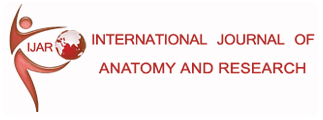IJAR.2019.334
Type of Article: Original Research
Volume 7; Issue 4.3 (December 2019)
Page No.: 7163-7168
DOI: https://dx.doi.org/10.16965/ijar.2019.334
DOES FEEDBACK HAVE A ROLE IN IMPROVING THE LEARNING AND ASSESSMENT IN FIRST PROFESSIONAL MEDICAL STUDENTS: A QUESTIONNAIRE BASED STUDY IN ANATOMY
Monika Lalit *1, Sanjay Piplani 2, Anupama Mahajan 3.
*1 Associate Prof, Dept. of Anatomy, Sri Guru Ram Das Institute Of Medical Sciences & Research (SGRDIMS&R), Amritsar, Punjab, India.
2 Professor, Dept. of Pathology, SGRDIMS&R, Amritsar, Punjab, India.
3 Professor & Head, Dept. of Anatomy, SGRDIMS&R, Amritsar, Punjab, India.
Corresponding Author: Dr Monika Lalit, House No.- 24, Lane 5, Gopal Nagar, Majitha Road, Amritsar 143001, Punjab, India. Ph No.- 9814325454 E-Mail: monika.lalit@yahoo.com
ABSTRACT
Introduction: Feedback is considered as a potential instrument for revamping the system of education, and plays a major role in learning. It is the specific information about the comparison between a students’ observed performance and a standard, given with the intent to improve the students’ performance. Thus it is intended to improve skills or change behaviour, rather than being an estimate of the students’ worth.
Materials and Methods: This observational study was performed on 150 first-year medical students in the Department of Anatomy. Three sets of questionnaires were developed. First set of questionnaire included questions to assess the students’ perception about the importance and need for feedback in the learning process, second set contained questions about the contents of feedback and third set had questions about the process of feedback. The data were compiled and analyzed.
Results: In General, 48.66% of students indicated receiving some sort of feedback, 28% not receiving feedback and 23.33% could not decide whether they had received any kind of feedback. 82.66% students indicated that feedback was important for their learning and 86.66% expressed their need for regular feedback. Majority of the students expressed their interest in receiving feedback after their formative and summative assessments. 92.66% agreed with the statement that feedback is more effective when negative information is sandwiched between positive information. 85.33% and 76.66% preferred receiving one-to-one and interactive feedback respectively.
Conclusion: Feedback simplifies the improvement process of self-assessment in learning, provides the opportunities to exercise regulating students’ own learning standards.
Key Words: Communication, Feedback, Performace, Self-Assessment, Student’s learning.
REFERENCES
- Ende J. Feedback in clinical medical education. JAMA 1983;250(6):777-781.
- Cantillon P, Sargeant J. Giving feedback in clinical settings. BMJ, 2008; 337, a1961
- Ferguson, P. Student perceptions of quality feedback in teacher education. Assessment & Evaluation in Higher Education 2011;36(1):51-62.
- Shenan T J. Feedback: Giving and Receiving. J Med Educ 1984;59-913.
- Duffield K E, Spencer J A. Survey of Medical Student views about Perception and Fairness of Assessment. Med Educ 2002;36:879-86.
- Lofmark R N. Facilitating and Obstructing Factors in Learning. J Advanced Learning 2001;34:43-50.
- Orrell, J. Feedback on learning achievement: rhetoric and reality. Teaching in Higher Education 2006;11(4):441-456.
- Srivastava T K, Waghmare L S, Mishra V P. Reflections: An approach to comprehensive learning in medical education. Natl J Physiol Pharm Pharmacol 2015;5:153-6.
- Glover P A. Feedback: ”I listened, reflected and utilized”. Third year nursing students’ perception and use of feedback in the clinical setting. Int J Nurs Pract 2000;6:247-52.
- Fernando N, Cleland J, McKenzie H, Cassar K. Identifying the Factors that determine Feedback given to Undergraduate Medical Students. Med Educ 2008;42:89-95.
- Sinclair H K, Cleland J A. Undergraduate medical students: Who seeks formative feedback? Med Educ 2007;41:580-2.
- AlHaqwi A I. Importance and Process of Feedback in Undergraduate Medical Education in Saudi Arabia Saudi J Kidney Dis Transpl 2012;23(5):1051-1055.
- Clynes M P, Raftery S E. Feedback: An essential element of student learning in clinical practice. Nurse Educ Pract 2008;8:405-11.
- Devi V, Mandal T, Kodidela S, Pallath V. Integrating students’reflection-in-learning and examination performance as a method for providing educational feedback. J Postgrad Med 2012;58:270-4.
- Gigante J, Dell M, Sharkey A. Getting beyond “Good Job”: How to give effective feedback. Pediatrics 2011;127:205-7.
- Moorhead R, Maguire P, Thoo S L. Giving feedback to learners in the practice. Aust Fam Physician 2004;33:691-5.
- Podsakoff P M, Farh J. Effects of feedback sign and credibility on goal setting and task performance. Organizational behaviour and human decision process 1989;44:45-67.
- Ilgen D R, Fisher C D, Taylor M S. Consequences of individual feedback on behaviour in organisations. Journal of applied Psychology 1979;64:349-71.
- Brocker J, Derr W R, Laing W N. Self-esteem and reaction to negative feedback:Toward greater generalizability. Journal of research in personality 1987;21:318-33.
- Davis D and Jacobs Sandwiching complex interpersonal feedback. Small group behaviour 1985;16:387-96.
- Henderson P, Ferguson-Smith A C, Johnson M H. Developing essential professional skills: A framework for teaching and learning about feedback. BMC Med Educ 2005;5:11.
- Wen C C, Lin M J, Lin C W, Chu S Y. Exploratory study of the characteristics of feedback in the reflective dialogue group given to medical students in a clinical clerkship. Med Educ Online 2015; 20:25965.
- Dekker H, Schonrock-Adema J, Snoek JW, Molen TVD, Cohen-Schotanus J Which characteristics of written feedback are perceived as stimulating students’ reflective competence: an exploratory study. BMC Med Educ 2013; 13:94.
- Rolfe I, McPherson Formative assessment: how am I doing? Lancet 1995;345:837–9.
- Black P, Williams Assessment and classroom teaching. Assessment in Education 1998;5:7–73.
- Knowles The Modern Practice of Adult Education: From Pedagogy to Andragogy. 2nd ed. Chicago: Follet Publishing Co; 1980.








